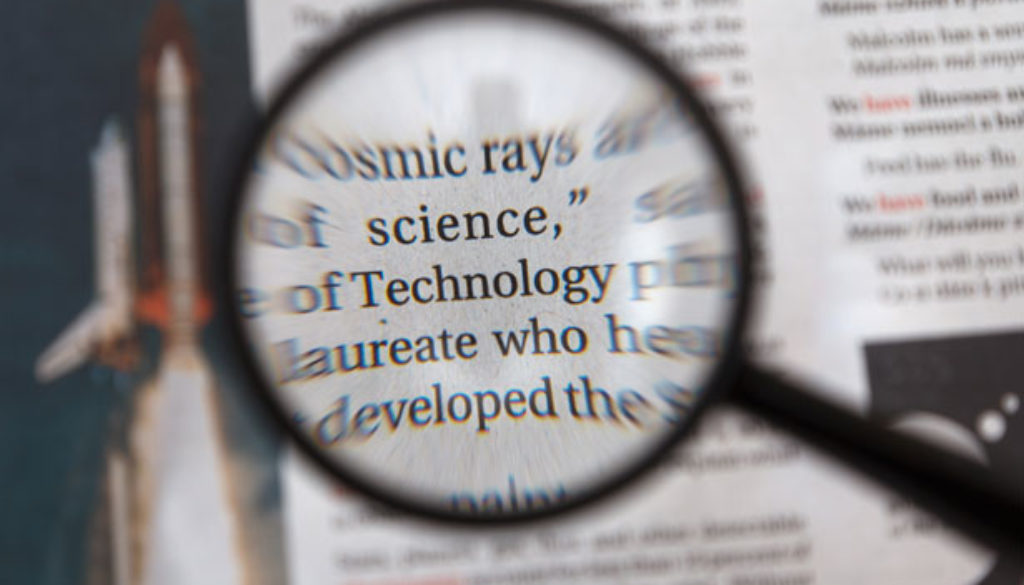Pruitt Purges Independent Scientists from EPA Advisory Boards
By Christina Swanson, Natural Resources Defense Council
Scott Pruitt, Trump’s head of the U.S. Environmental Protection Agency, took more steps today to weaken the role of science for protecting the public from harmful chemicals and pollution, announcing unprecedented changes to eligibility of scientists to serve on EPA’s key scientific advisory boards and committees.
The new policy will ban scientists who receive research grants from the EPA, predominantly academic scientists from research universities who, Pruitt argues, have a conflict of interest. However, in a move that turns the concept of conflict of interest on its head, the EPA will allow scientists, consultants and others who work for or receive funding from the chemical and fossil fuel industries to serve on these advisory bodies.
This new policy is already showing its effects. In the same announcement, Pruitt named the chairmen of the three most high-profile science advisory panels. Pruitt’s choice to be Chairman of the Science Advisory Board is Michael Honeycutt who as director of the Toxicology Division of the Texas Commission on Environmental Quality weakened environmental safeguards in that state by downgrading the toxicity of about two-thirds of the 45 chemicals the Commission evaluated through its risk assessment program since 2007.
Honeycutt has made public statements and testified in Congress disputing the harmfulness of smog (ground-level ozone) and soot (PM2.5) air pollution, views that have been repeatedly and emphatically rejected by the very EPA Scientific Advisory Board he is now slated to chair, as well as the Clean Air Scientific Advisory Committee and the vast body of medical science. Ozone, is a well-documented lung irritant known to exacerbate asthma, lung disease and heart disease that forms when emissions from cars, power plants, industrial boilers, refineries, chemical plants, and other sources chemically react in the presence of sunlight. While EPA’s current scientific advisors unanimously concluded that even the current ozone standard is too lax, Honeycutt claimed that he had “seen data” that showed that more protective air pollution standards for ground-level ozone “might have a negative health benefit.”
The EPA chief chose industry consultant Tony Cox to head the Clean Air Scientific Advisory Committee. Cox has denied that deep reductions in ground-level ozone smog, in the U.S. or elsewhere have produced any detectable health benefits. In a congressional hearing, a Johns Hopkins doctor forcefully refuted Cox by saying there is a “strong consensus among people who take care of patients with asthma and other lung diseases that ozone is harmful, it causes illnesses, it causes them to die.”
Paul Gilman, chief sustainability officer at waste-to-energy company Covanta Energy, will head the Board of Scientific Advisers.
More Industry Insiders and Science Deniers on the Way
Pruitt reportedly will announce later this week appointments of more than a dozen industry insiders and science deniers to be new members of these two advisory panels. Based on lists obtained by the Washington Post and others, expected new members of the Science Advisory Board include Kimberly White, who works for the main trade association for chemical manufacturers, the American Chemistry Council; Samuel Cohen, a consultant for the chemical industry who served as an industry witness for DuPont in litigation over kidney cancers associated with exposure to PFOA chemicals; and John Graham, who as a political appointee under President G. W. Bush defended risk assessment methods that devalued the benefits of clean air and safe drinking water for older Americans. For more information these appointees, see our comments to EPA.
Most of the expected new Science Advisory Board members—65% of them—and all of the new Clean Air Scientific Advisory Committee members come directly from the chemical or fossil fuel industry, are consultants for these industries, or are staff from red state environmental departments with histories of challenging and weakening regulatory standards that protect the environment and health. But even appointees from academic institutions have industry ties or a history of criticizing the science and economics underpinning tighter environmental regulations: Rodney Andrews from the University of Kentucky is a member of the National Coal Council and a “clean coal” booster who regularly speaks at pro coal events.
Purge Then Pack
The vacancies filled by these new appointees were made possible by Pruitt’s earlier purge of internationally recognized scientists, most from prestigious universities, from EPA’s science advisory bodies. For the Science Advisory Board, he declined to renew appointments of all members whose terms expired September 2017. For the Clean Air Scientific Advisory Committee, he went further, removing two members whose terms were not slated to expire to make room for new appointees. As Terry Yosie, director of the Science Advisory Board during the Reagan administration, noted in a massive understatement, “(t)he independence and stature of the new appointees is generally not at the level of the people they replaced.”
This purge of credible, independent scientists from its scientific advisory bodies damages EPA’s credibility. Worse, the transparent packing of these same advisory bodies with representatives of polluting industries that are more concerned with their bottom lines than with public health will damage the environment and hurt people.
Is This What We Want for the EPA?
The mission of the EPA is to “to protect human health and the environment.” Nearly 40 years ago, Congress directed the EPA to establish a Science Advisory Board and the Clean Air Scientific Advisory Committee to provide credible expert and independent scientific advice to the agency. Along with right of the public to comment on EPA rules and regulations, these bodies are meant to help prevent corruption and ensure that our federal agencies work in the public interest.
For those of us who value the expert application of science to public policies that protect our environment and health and think that objectivity, integrity, independence, and competence of EPA staff and advisors are its most valuable assets, it is not. These unprecedented actions violate EPA’s own ethics policies for advisory committee members and need to be challenged and investigated by Congress and the EPA Inspector General.

